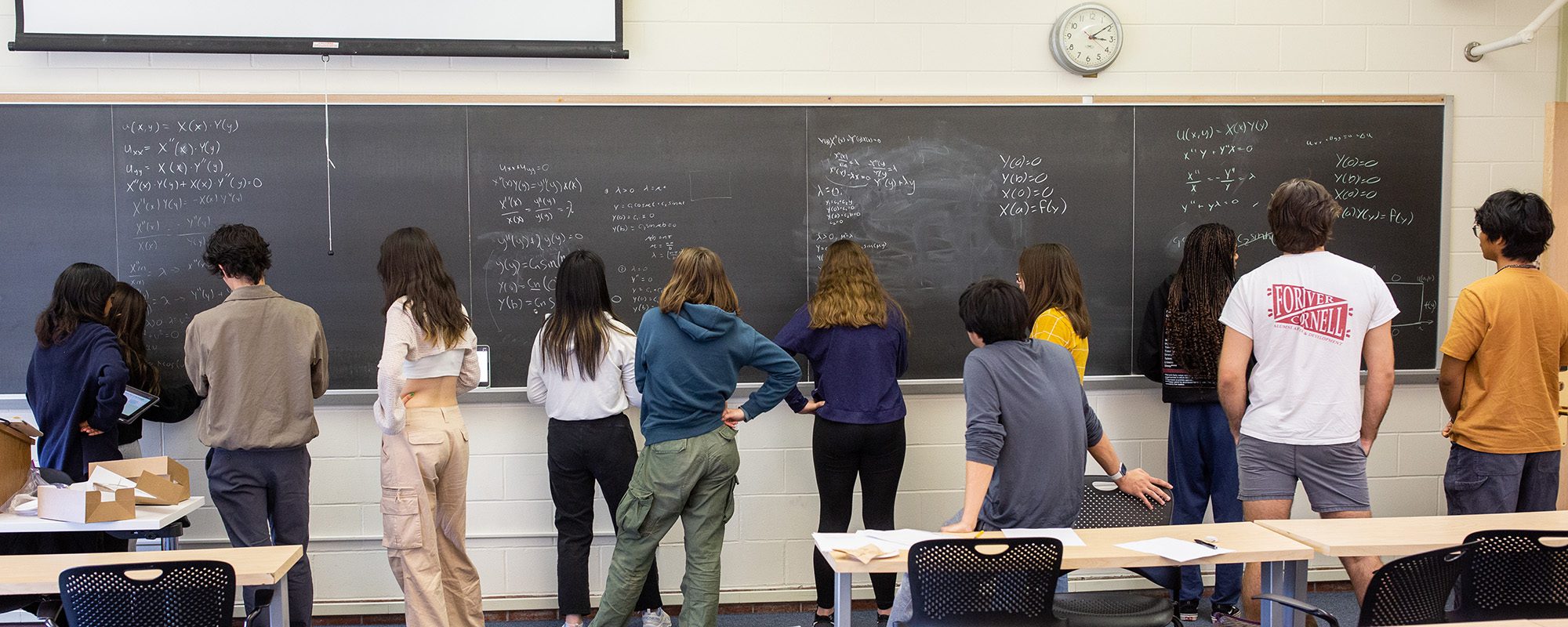Note: In order to be considered, applicants must complete both a Qualtrics survey and a Workday application. The relevant Workday link is provided in the Qualtrics form.
Hiring Cycle:
| Terms | Applications Open | Interviews Begin | Positions Announced |
| Fall | Late March | Mid-April | Late May to June |
| Spring | Mid-October | Early November | Late December to January |
“In addition to helping students develop a deeper understanding and appreciation for course material, I have developed a higher proficiency in the material and gained some invaluable skills that include presentation, facilitation, and leadership.”
Emily Care ’21 Academic Excellence Workshop Facilitator
Who Are Facilitators and What Do They Do?
Facilitators are engineering students who have been successful in core courses and want to help their peers succeed. They facilitate one workshop course per semester, receiving pay through The Office of Inclusive Excellence.
Facilitators spend five to six hours per week preparing for and conducting the workshops. Facilitators take part in ongoing training in areas such as:
- Community building
- Active learning techniques
- Communication
- Group dynamics
- Mentorship
- Teaching in a diverse classroom
Facilitators also receive feedback through student midterm evaluations and peer/staff observations. The feedback allows facilitators to see opportunities for growth, and the training equips them with the tools to achieve those goals.
In the end, facilitators report positive experiences—fun, rewarding, professionally valuable, even life-changing.
Requirements and Expecations
- Facilitators must have at least a 3.0 GPA and a grade of B+ or higher in the course they would like to facilitate is strongly preferred.
- Workshops meet once per week for two hours.
- Facilitators attend training at the start of the term and about twice a month during the semester.
- Facilitators are paid for leading workshops (two hours weekly), preparing materials (three to four hours weekly), and attending training sessions (six to seven per semester).
Co-facilitation: More Brains, More Support
One way to create great experiences for our facilitators and their students is by using co-facilitation. Each workshop is led by two undergraduate facilitators. They work together to prepare and lead the workshops. From making worksheets to answering student questions, facilitators model collaboration for their students. The team approach creates a supportive environment, especially for new facilitators trying new techniques.
